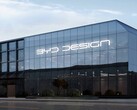BYD, the world's second-largest EV maker, now expects that electric cars with solid-state batteries that sport up to 500 Wh/kg energy density will proliferate by the end of this decade.
In the next three years, argues BYD's head of research, solid-state batteries will appear in premium electric cars, then by 2030 they will trickle down to midrange and even budget EVs.
This is a marked improvement on the previous mass solid-state battery adoption timeframe established by the globe's largest cell manufacturer, CATL. Just recently, CATL didn't see solid-state batteries appearing in retail electric cars en masse before 2030.
After seeing the research efforts that now go into solid-state batteries, and the initial commercialization success of cells with semi-solid electrolyte that only have 5% liquid component, CATL changed its tune. It is now waxing poetic how it has been putting the work in solid-state battery research for a good decade and expects its first cars with the superior battery technology in 2027.
Coincidentally, that is when Toyota intends to launch its first EVs with solid-state battery, too. They will most likely be released under the Lexus brand, as Toyota also thinks that the cells will still be expensive then, and will only go into premium electric vehicles at first.
Besides the biggest EV manufacturer after Tesla, BYD also happens to be the globe's second-largest battery maker as well, so its views on a mass solid-state battery adoption by 2030 bode well for the electric car industry as a whole.
CATL ranks the current commercialization readiness of the solid-state battery technology at five on a 10-point scale, mainly on account of the significant production costs. It expects it to hit 8/10 or even 9/10 in the next few years, though, as a critical mass of research and manufacturing breakthroughs is reached.
NIO already sells vehicles with 150 kWh batteries that have a 95% solid electrolyte which cover 650 miles on a charge, and CATL is of the opinion that this will be a nice stopgap technology until true solid-state batteries fall down in price enough to warrant mass adoption by EV makers.
According to BYD's science chief, cheaper LFP cells will stay relevant for the next 15–20 years, though, despite their middling energy density, and will be used alongside solid-state batteries.
He argues that the LFP tech may have been in development for two decades, but the lessons learned from creating its manufacturing chain can be directly applied to solid-state battery production now, which will lower their prices and speed up technological adoption.
Get the Tesla Universal Wall Connector EV Charger with Dual Plug on Amazon

















